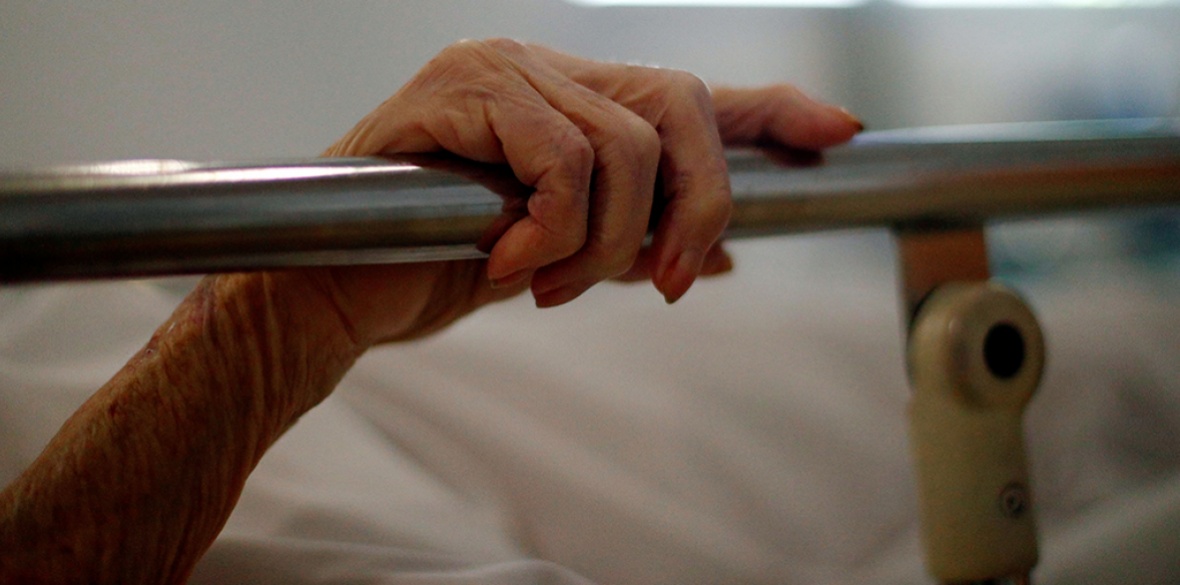This is the last article you can read this month
You can read more article this month
You can read more articles this month
Sorry your limit is up for this month
Reset on:
Please help support the Morning Star by subscribing here
A DIRE lack of hospital beds and staff has crippled Britain’s response to the coronavirus pandemic, a damning report has revealed.
Experts at the Nuffield Trust think tank said that the NHS had started off in a much worse position going into the crisis compared with the health services of other countries such as Germany, which has far more beds and nurses.
The coronavirus death count in the UK is still the highest in Europe, with 45,677 deaths reported in hospitals and care homes.
This country also has the second-highest known infection count in Europe after Spain — standing at 297,914 as of today.
The virus has been found in a wider geographical spread compared with other nations such as France and Spain, where cases are found in higher-concentration “hotspots,” the Nuffield Trust revealed.
For example, while London had more Covid-19 cases than any other part of the country, experts found the capital accounted for less than 17 per cent of the total cases nationwide.
Cities like Helsinki in Finland accounted for 69 per cent of cases in that country, while Porto accounted for 60 per cent of cases in Portugal.
The report states: “Whereas every part of the UK has had excess deaths of 30 per cent, this is only the case in 15 per cent of the regions in France, 35 per cent of the regions in Italy and 60 per cent of the regions in Spain.”
The think tank attributed the more even spread of the virus in the UK to possible factors such as the NHS having fewer medics and beds per person, lower levels of spending on buildings and equipment and higher levels of bed occupancy going into the pandemic.
Socio-economic and racial inequalities may have also made the virus deadlier in Britain than in other countries, the report suggests.
Senior research fellow Sarah Reed, who authored the report, said: “The NHS and its staff pulled out all the stops to react to the pandemic with impressive speed and resilience, avoiding the harrowing scenes in hospitals seen in other countries.
“But, in the face of our devastating outbreak, the long-standing issues with bed capacity and workforce shortages that have been with us long before Covid-19 will continue to slow the health service down compared to other systems in the race to recovery.
“Looking ahead, this will mean longer waits for treatment, further rationing of care and the danger that health outcomes in the UK, which already lag behind many other similar countries, will worsen.”
The report looked at the NHS compared with health systems in 31 countries, including Germany, France, Italy, Sweden, Spain and the US.
It found that Britain ranked in the bottom third when it came to capital spending, doctors and beds per person, and hospital bed occupancy.
By contrast, Germany had more than three times the beds and nearly twice as many nurses per person as the UK.
The report comes as Prime Minister Boris Johnson admits that the government could have done things differently in its response to Covid-19, acknowledging that there were “lessons to be learned.”
A Department of Health and Social Care spokeswoman said in response to the report that the NHS was being given a “record cash funding boost of £33.9 billion extra by 2023-24.”
She added: “And the Prime Minister recently announced a further £3 billion to relieve winter pressures on A&E and emergency care.”
Sonia Adesara, a junior doctor and member of Keep Our NHS Public, told the Star that the “horrendous death toll” should be a “wake-up call” to the government on the urgent state of the NHS.
She added: “Lives have been lost by government incompetence and decades of policies have undermined and fragmented our NHS.”
Keep Our NHS Public will be calling for “pay justice” for NHS workers next Wednesday, when demonstrators will march in central London from St Thomas’s Hospital to Downing Street from 5pm.












